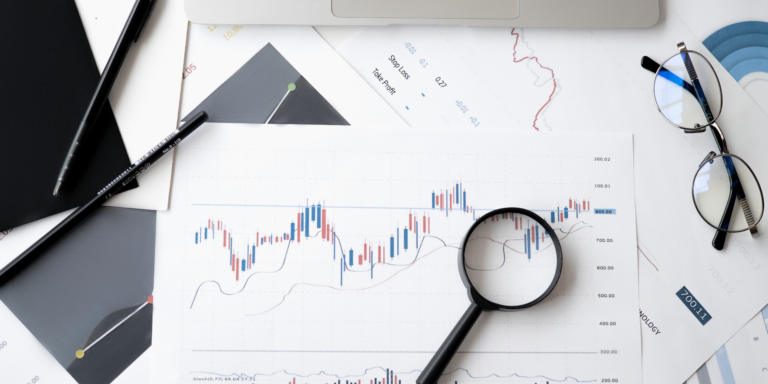As we enter the new year there are a lot of mixed feelings on where the direction of the economy may go, but one thing we believe is for certain, there is a lot to look forward to. When we look back at 2023, it was an interesting year. We had banks collapse, recession fears, wars rage, COVID-19 continuing to make an impact, an increase in foreign tensions, rising debt levels, the list goes on. Needless to say, a lot has happened and it’s difficult to remember another time when the outlook was so uncertain. However, there are still a lot of catalysts that we believe will provide a nice backdrop to the current economic landscape as we look onwards into 2024.
Interest rates have played a pivotal role in the way we finance our day-to-day lives. Over the last two years, we have seen an increase in rates. These rate hikes have kept the economy in check as the Federal Reserve continues to try to tame inflation and get it to its magical 2%. As high as inflation has been (40-year highs) rates are back to the “old normal”. Rates may continue to remain higher for longer, but that’s not something we haven’t seen before. U.S long-term rates today are within the range of historical norms. Although we may feel that they are high today, it’s not nearly as high as we saw in the 1980s when rates were at 14%.
We are wary but remain optimistic as we believe the consumer will continue to carry the economy even if rates remain higher for longer. As real wages go up for the first time in a while and home values remain relatively high to pre-pandemic levels, consumer spending has that extra support. Research from Capital Group states, “when 10-year rates were between 4-6%, the median annualized return since 1976 for the S&P500 Index was 14.2%”. There is hope for continued growth in the current macro environment.
Throughout 2021 and 2022 we heard the U.S. was headed for a major recession. This fear sparked the idea of the next “Great Recession” as we were reminded of times such as 2008 and 1995. Although we don’t rule out a small pullback in the market over the next year, nor a recession (this is always a possibility), we don’t find it likely given the current economic conditions.
So why didn’t the U.S. fall into a recession in 2023, as so many people predicted? To answer your question, it did happen, just not in a typical fashion. We have had a rolling recession going on in different parts of the economy since 2020. In 2020, we had travel and oil collapse and in 2022 we had Housing and Semiconductors collapse. Despite the burden of high inflation and rising rates, this rare event might just be what the economy needed to keep it away from disaster. With the housing market starting to recover, if contractions and recoveries continue to happen, the U.S. could avoid what was one of the most widely anticipated economic downturns we have ever seen.
A huge event that could play out is the expansion of corporate earnings. As we continue to get mixed signals about the direction of the economy, one of the key factors in the continued expansion of stocks is corporate earnings. Last year was a difficult year for earnings as some companies performed mediocre, some performing well, and others not well at all, annual earnings growth was relatively flat in 2023. Although there are risks regarding inflation which could keep consumer spending low, and different geopolitical risks, earnings growth, we think, could rebound in 2024.
Cash cash cash. Investors took part in a mass exodus from stocks and bonds into cash over the last few years. This is understandable as rates continued to rise, and bonds became less attractive. As rates rose making equities more and more risky, investors sought safe assets such as Money Markets, CDs, and treasuries to help keep them afloat as the war on inflation continued to play its part around the world (Capital Group, Morningstar). As rate hikes look to come to an end there is a lot of cash that could come off the sideline and play a major part in keeping the economy alive as inflation continues to cool. We believe this is a big catalyst that could help keep the economy moving as high rates continue to play their part.
From cash coming off the sidelines, a rolling recession mitigating the potential downturn of the U.S. economy, an expansion in corporate earnings, and a potential for rates to come lower, there is another topic to look forward to…AI. Major advancements in artificial intelligence stole the attention of the American people, driving big tech stocks higher and higher. The generation and increase in productivity of Artificial Intelligence is yet to be seen. These AI applications are spawning innovation across various industries which could help increase corporate earnings and promote a capital spending boom sparking a manufacturing revival.
With all this being said, it can be hard to capture what you believe is the “right direction”. Regardless of whether you are wary or optimistic, we believe planning provides our clients, at any stage of life, the confidence to face life’s uncertainties. Through our Strategic Pathways Process, you have a financial roadmap, completely personalized to guide you as your life and needs evolve.


